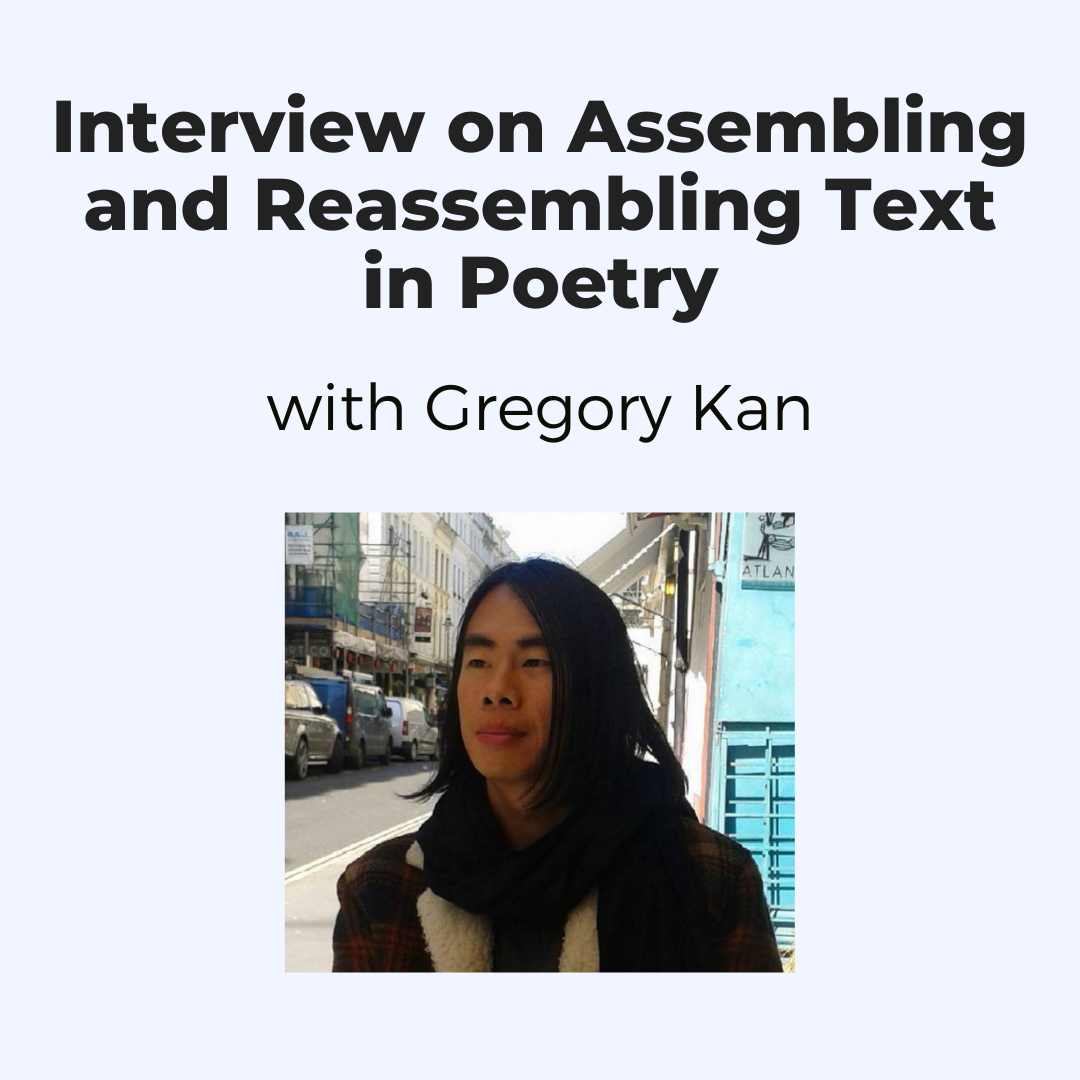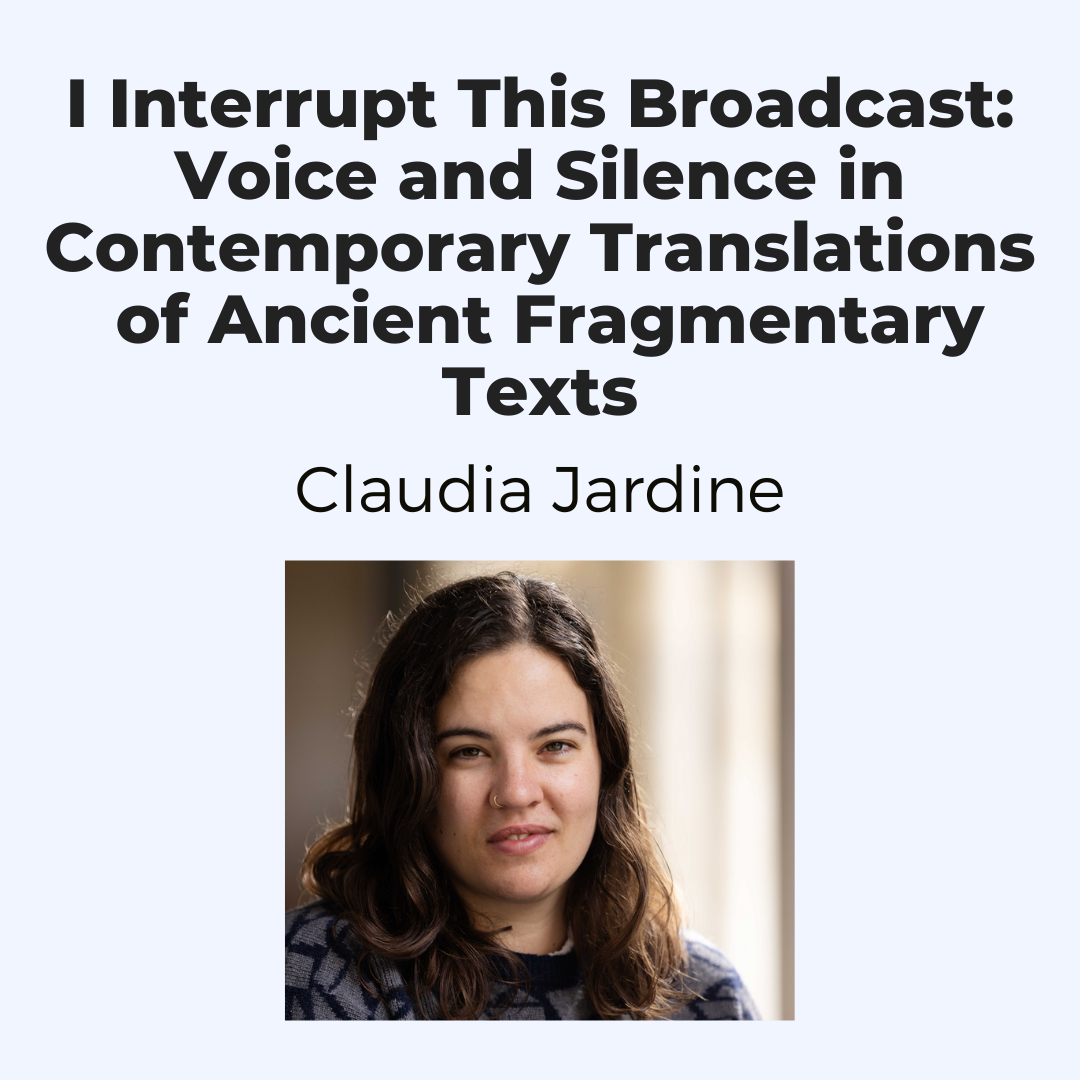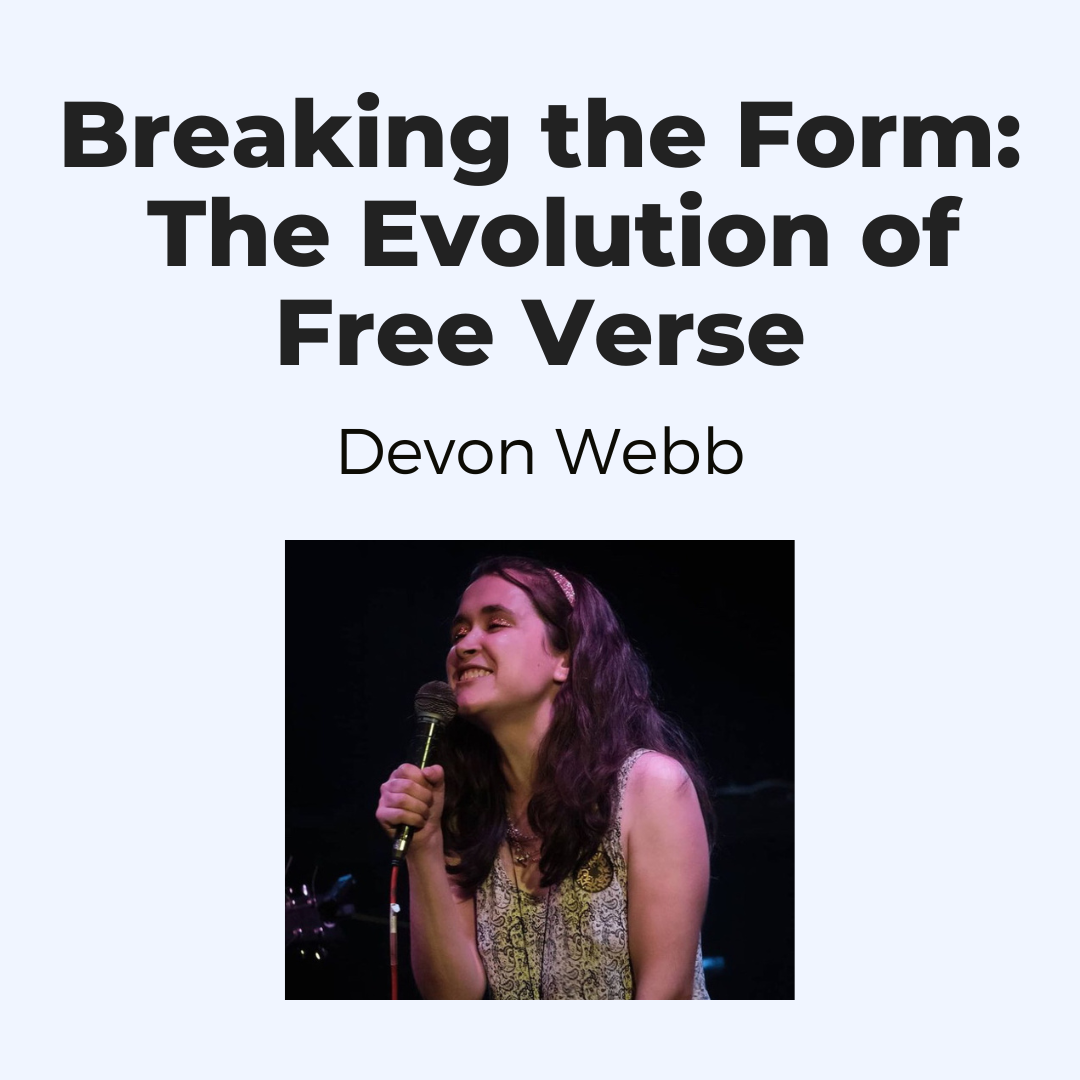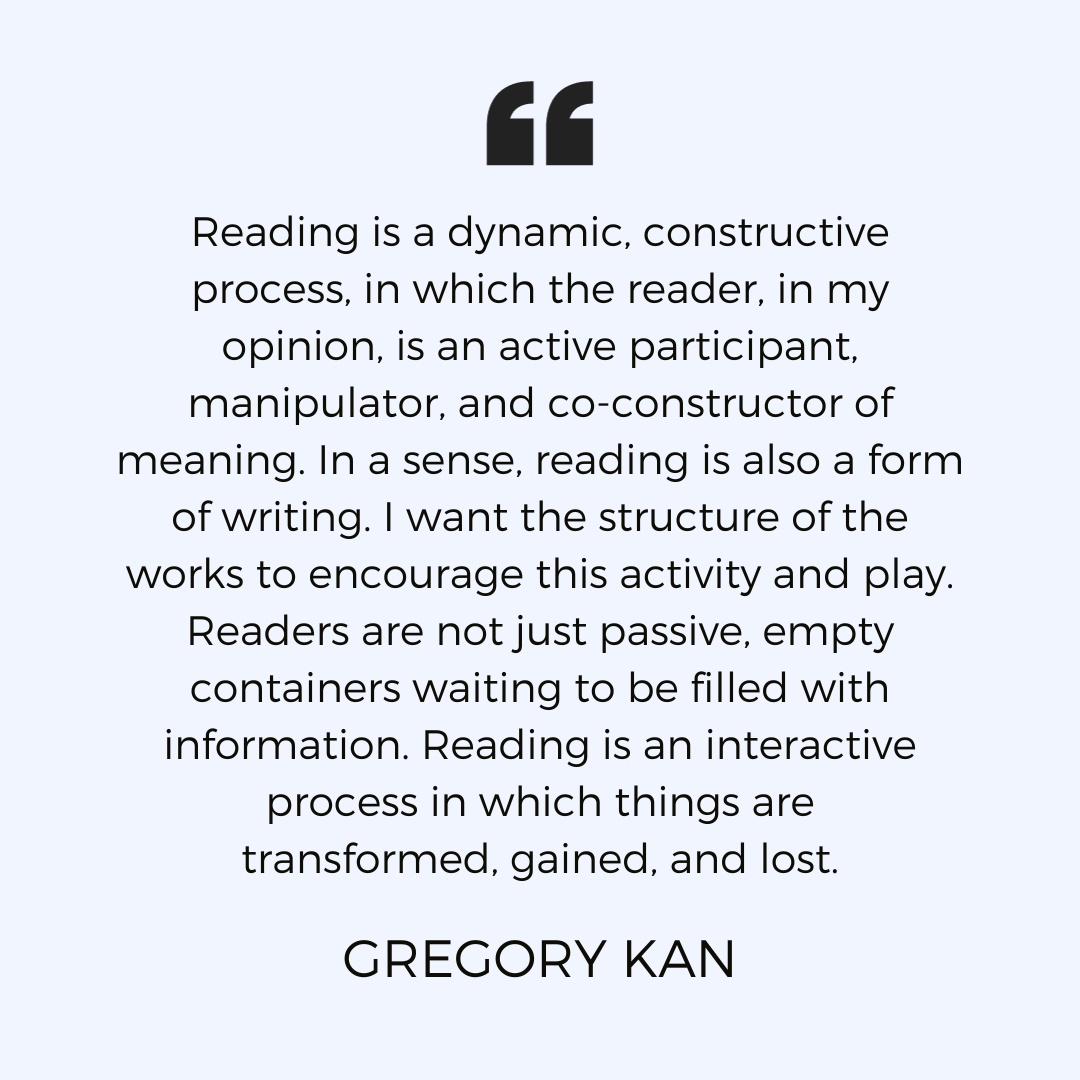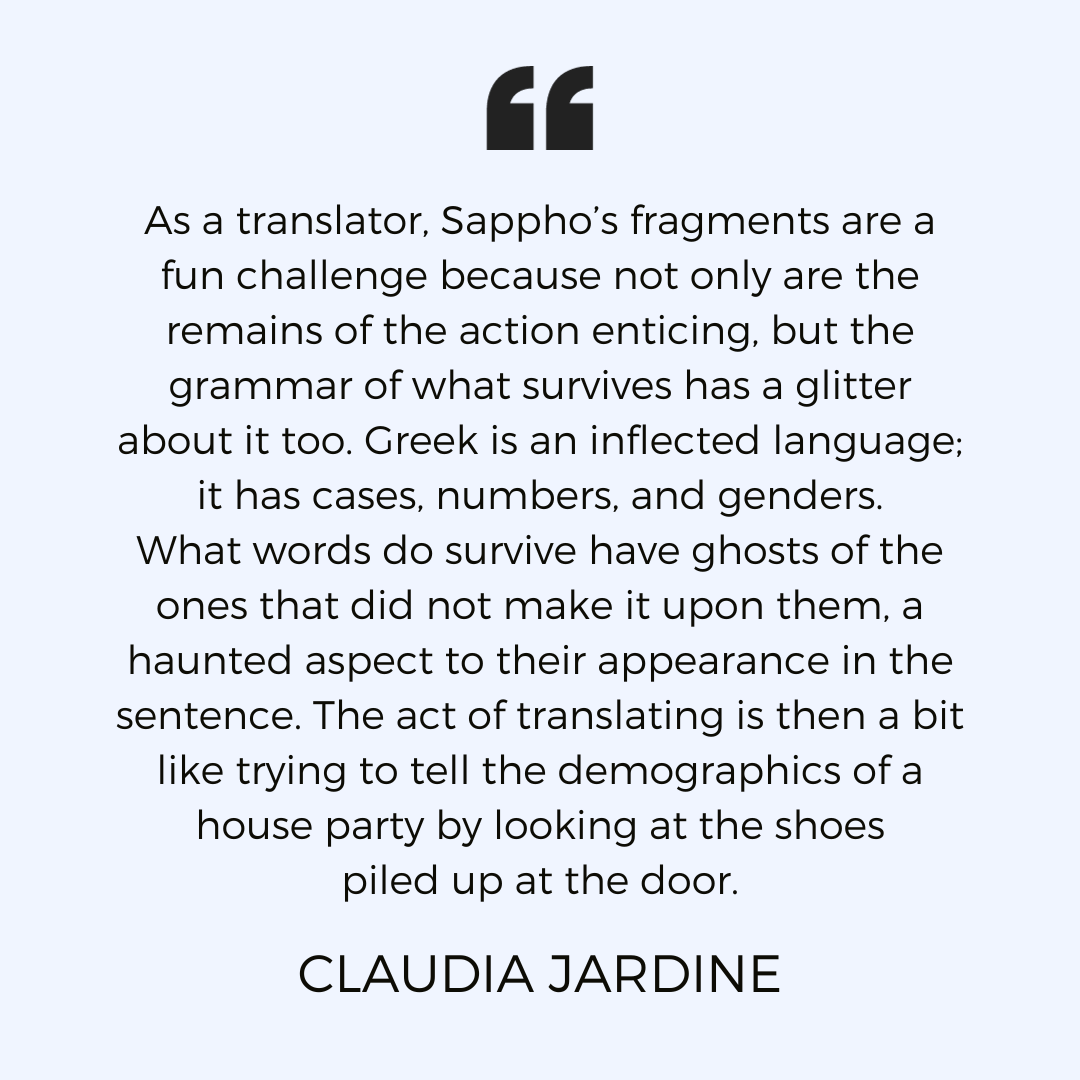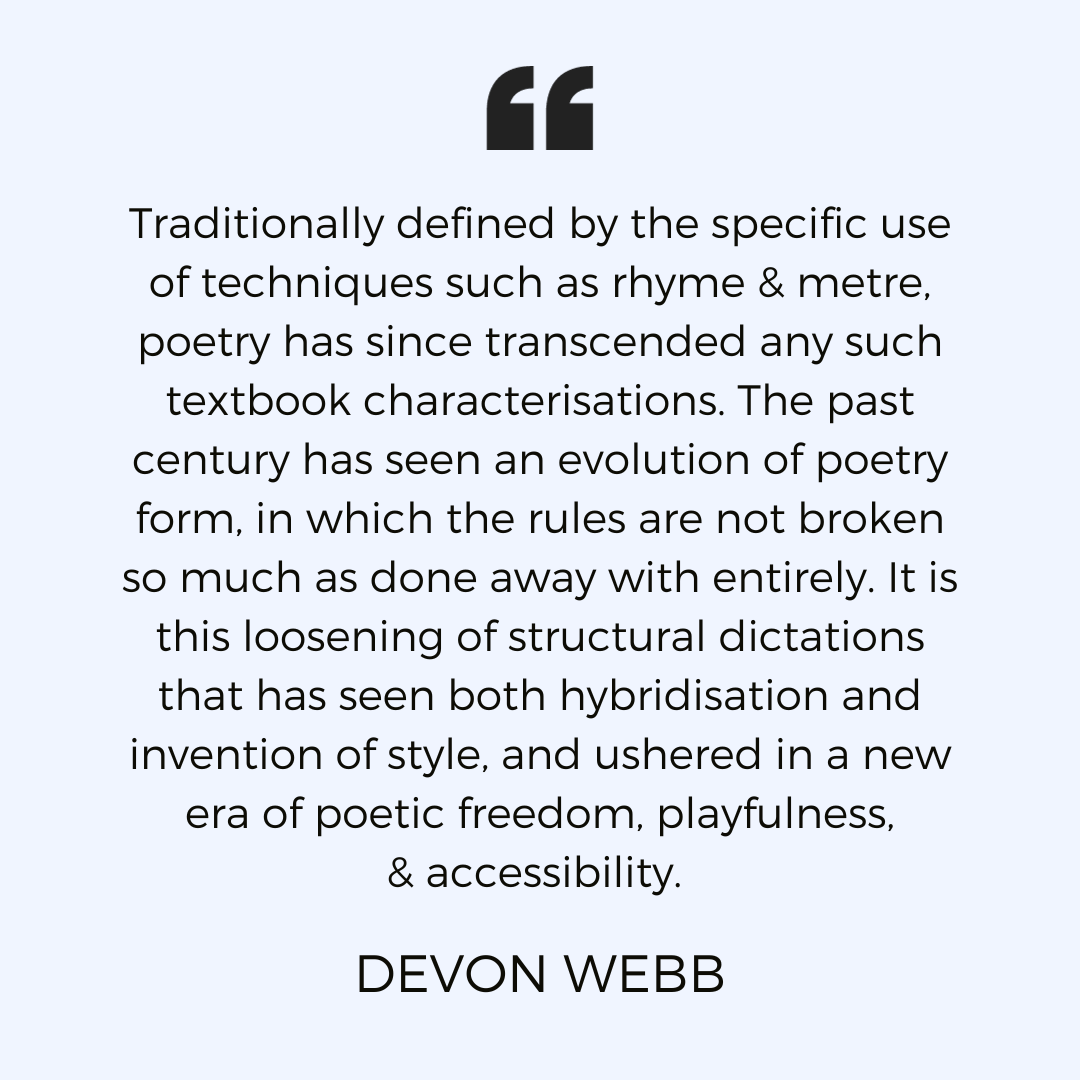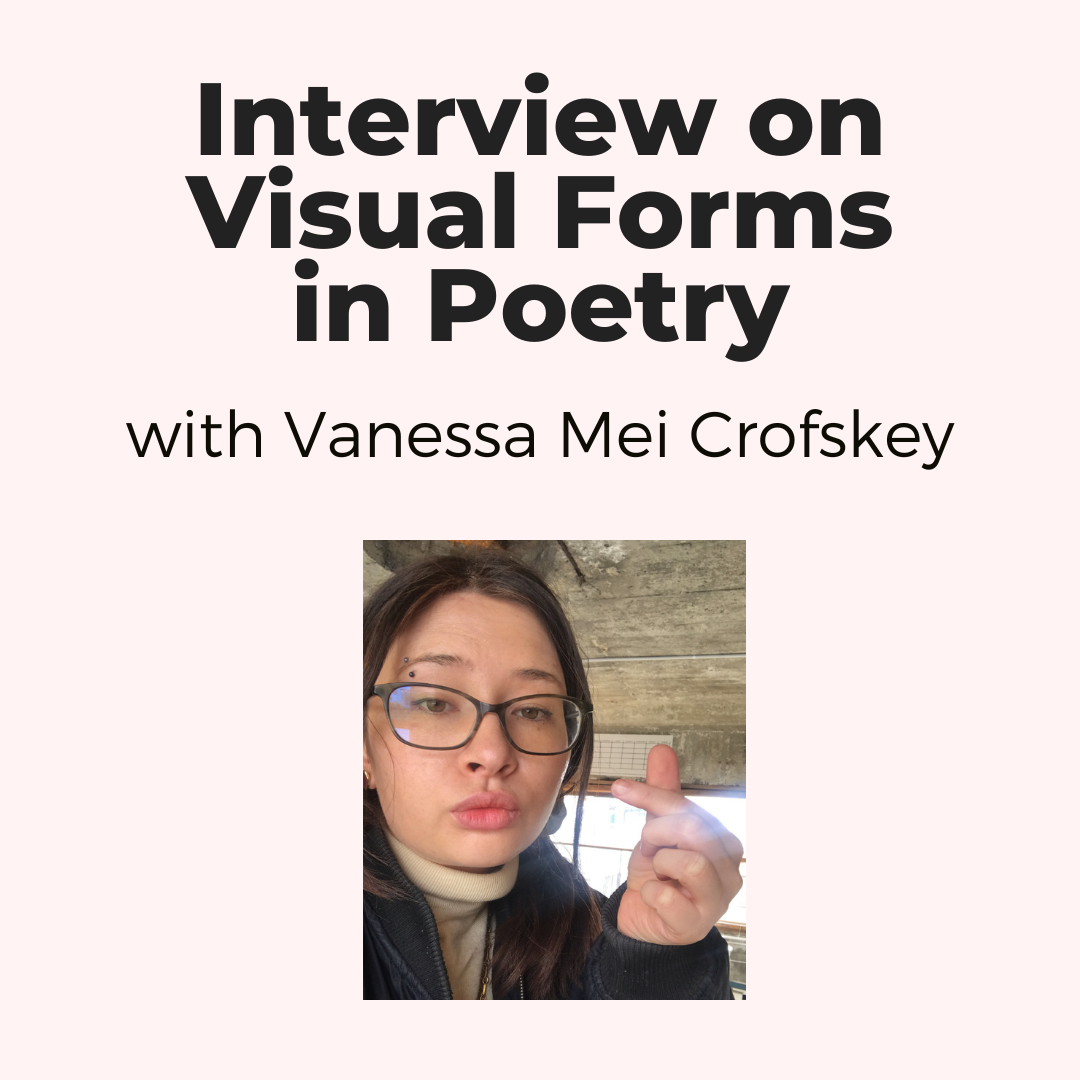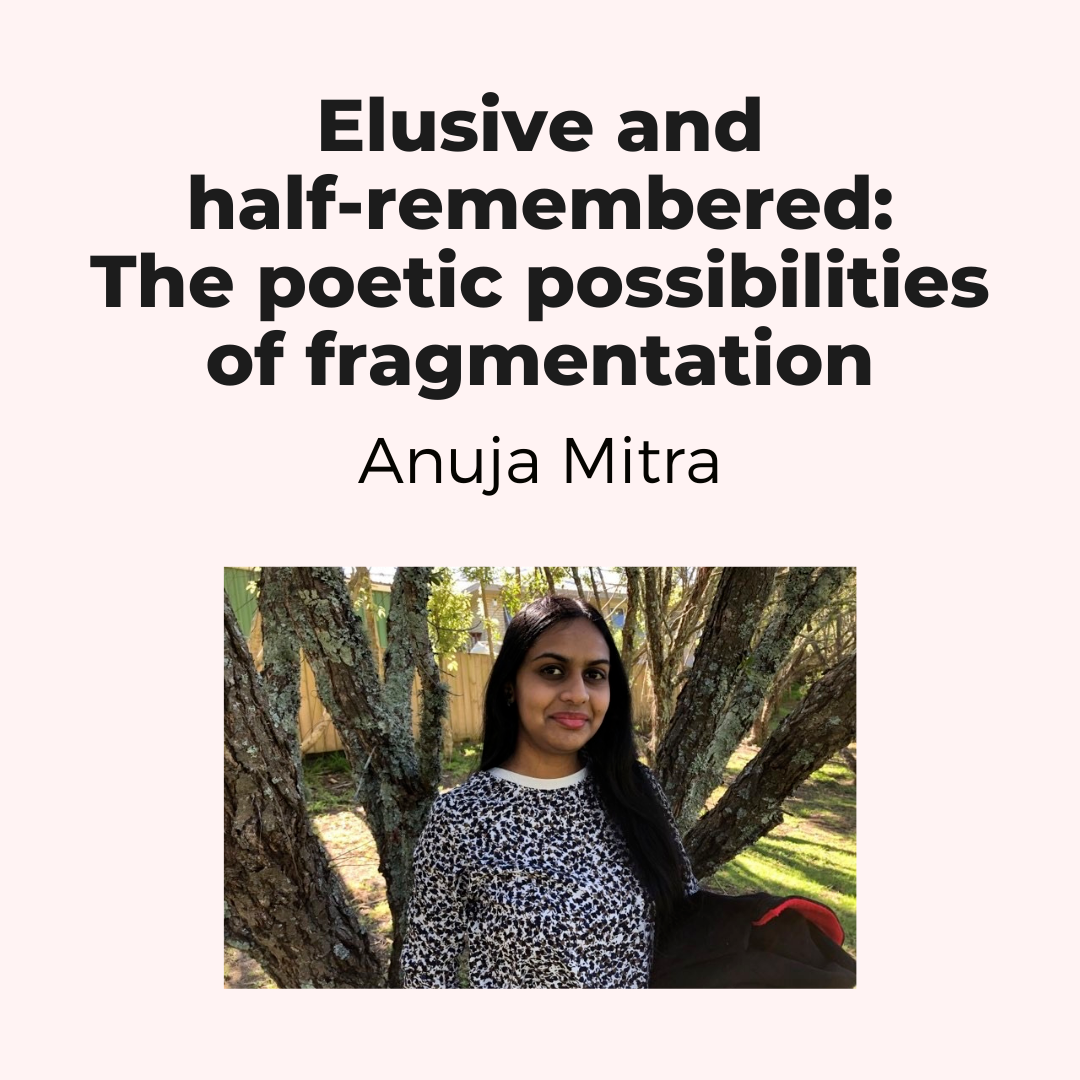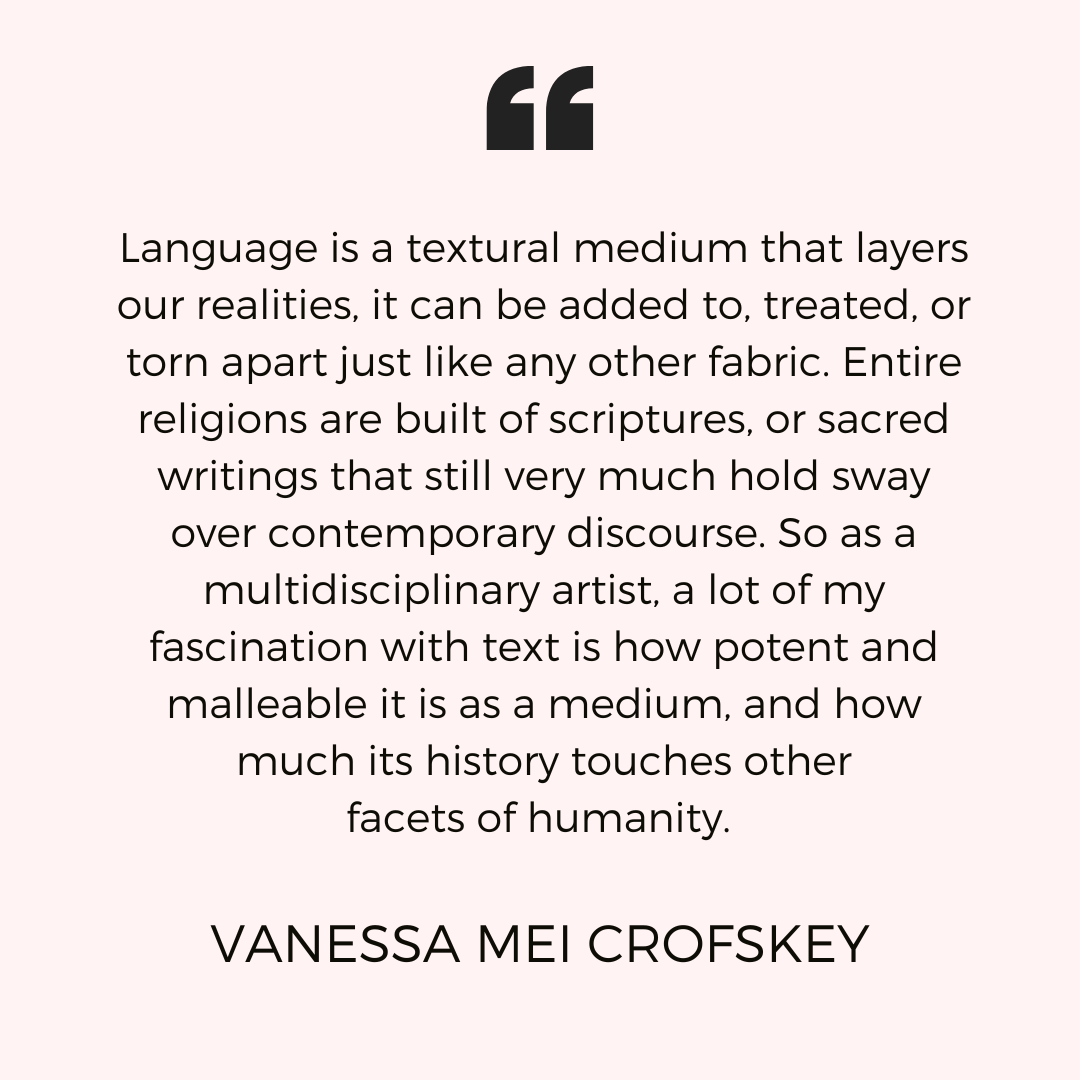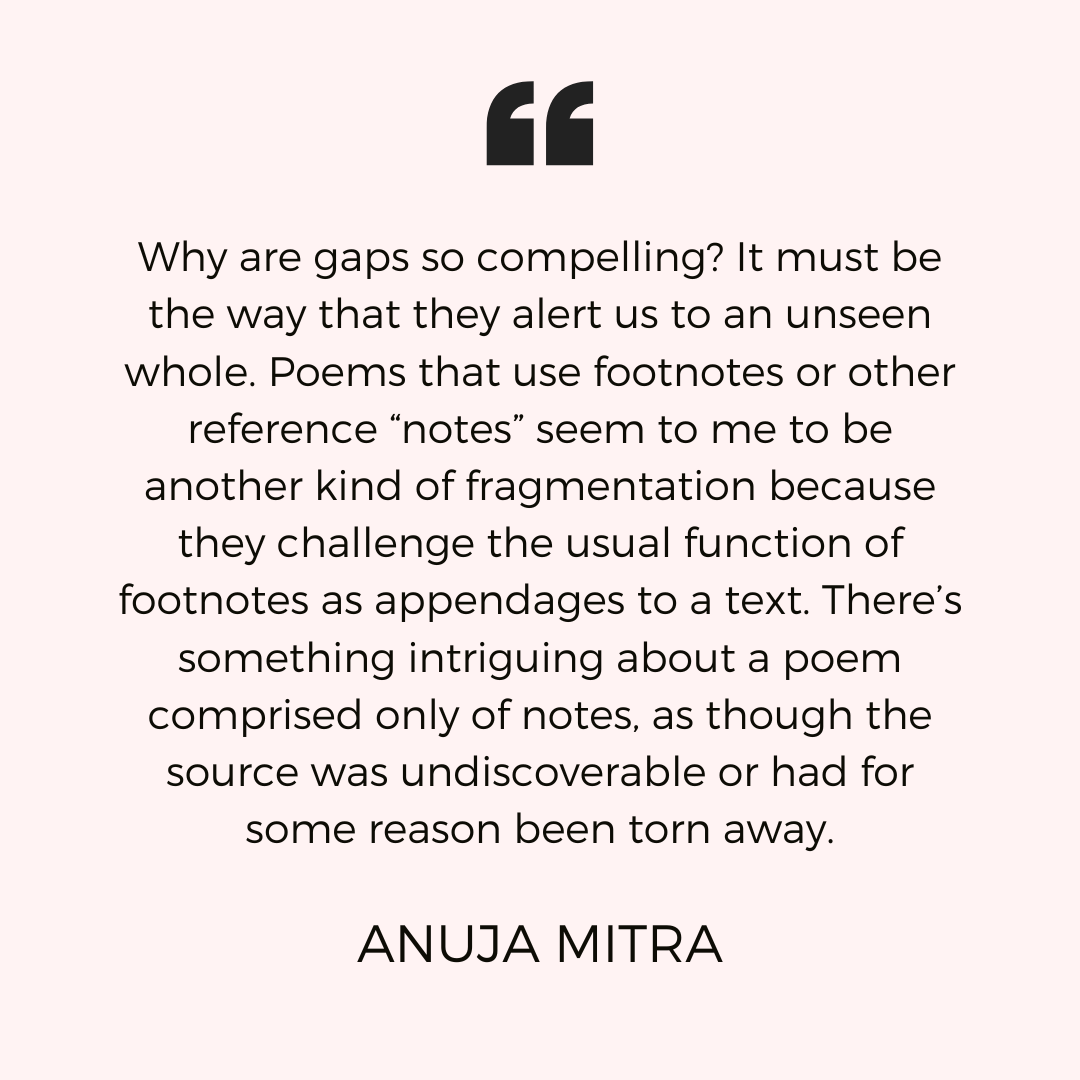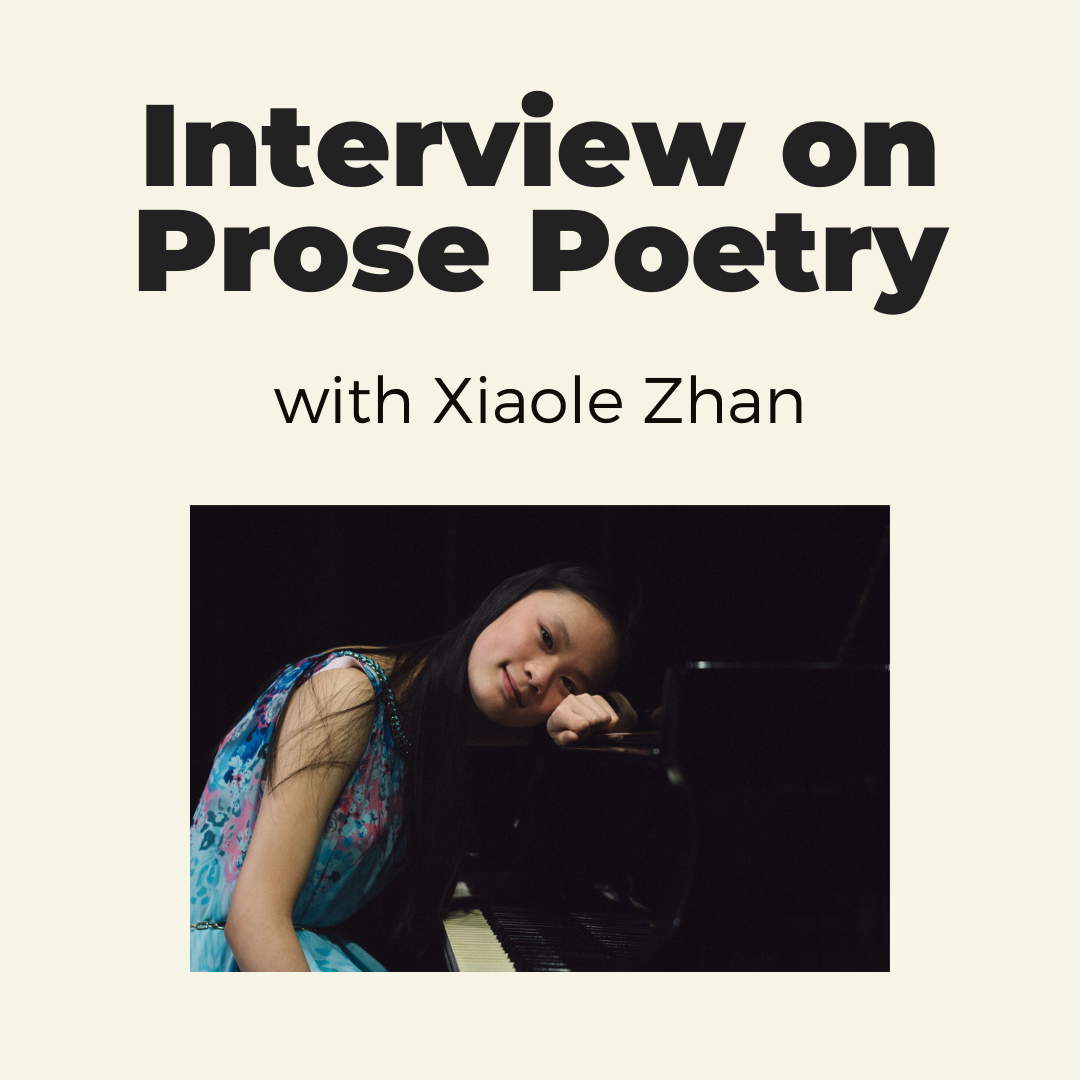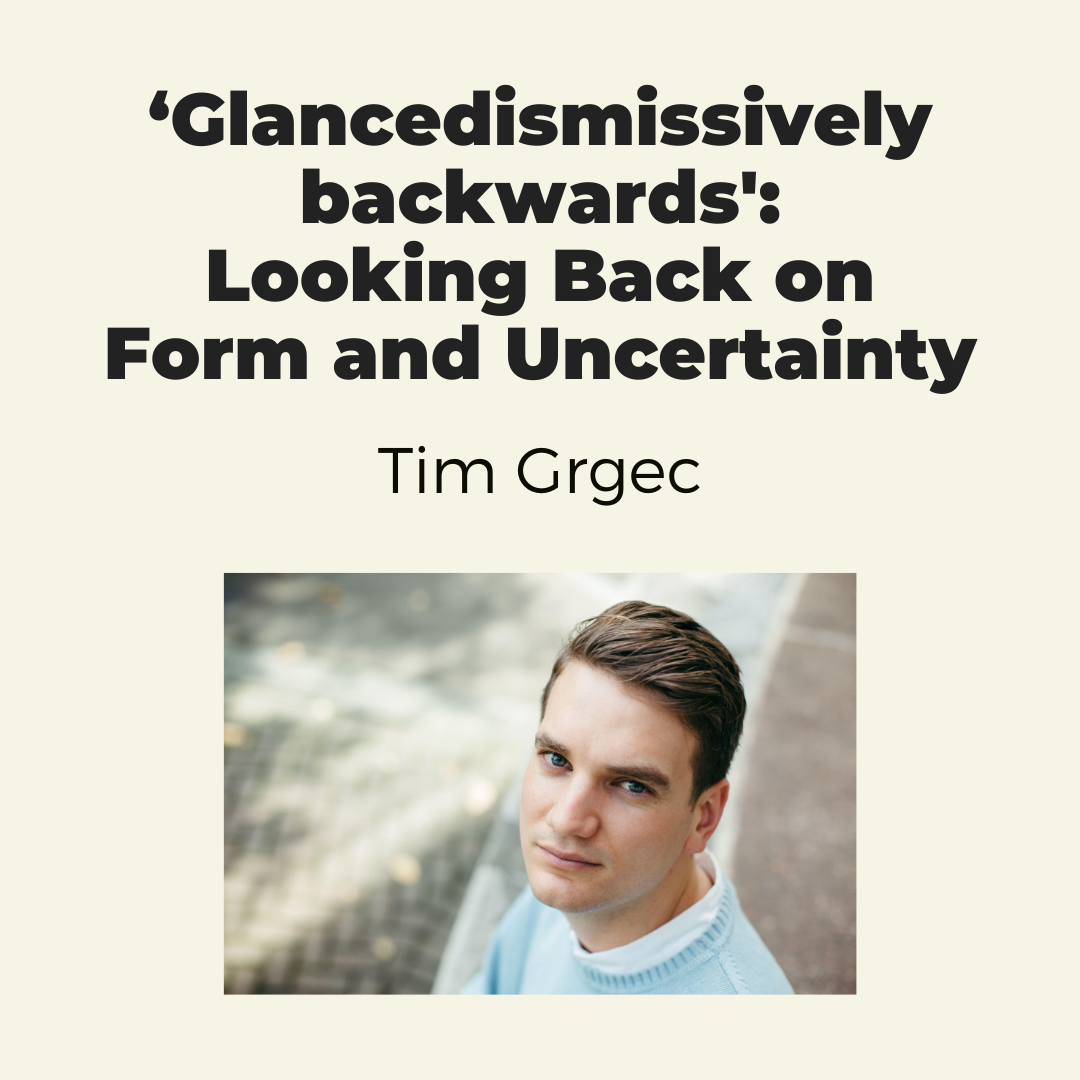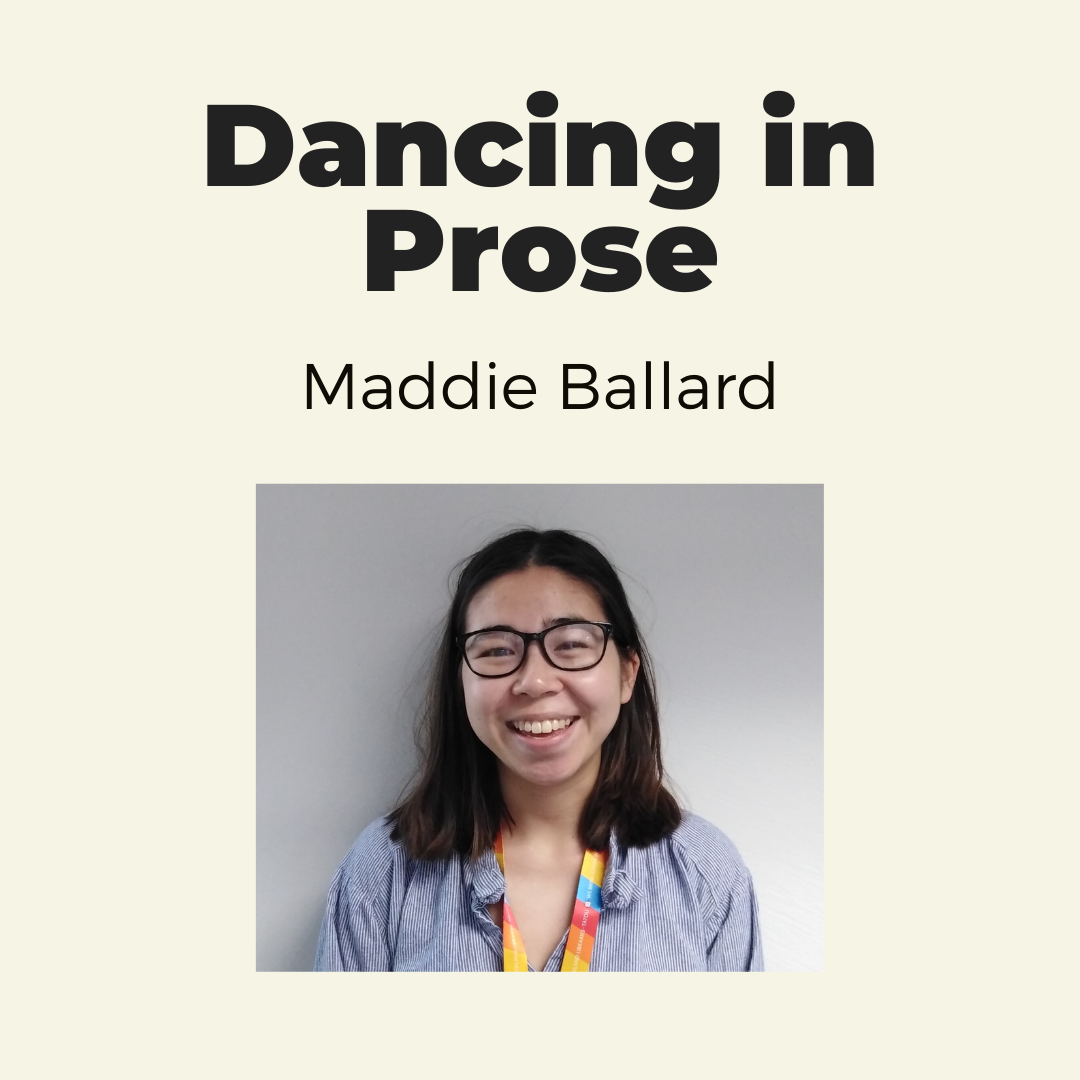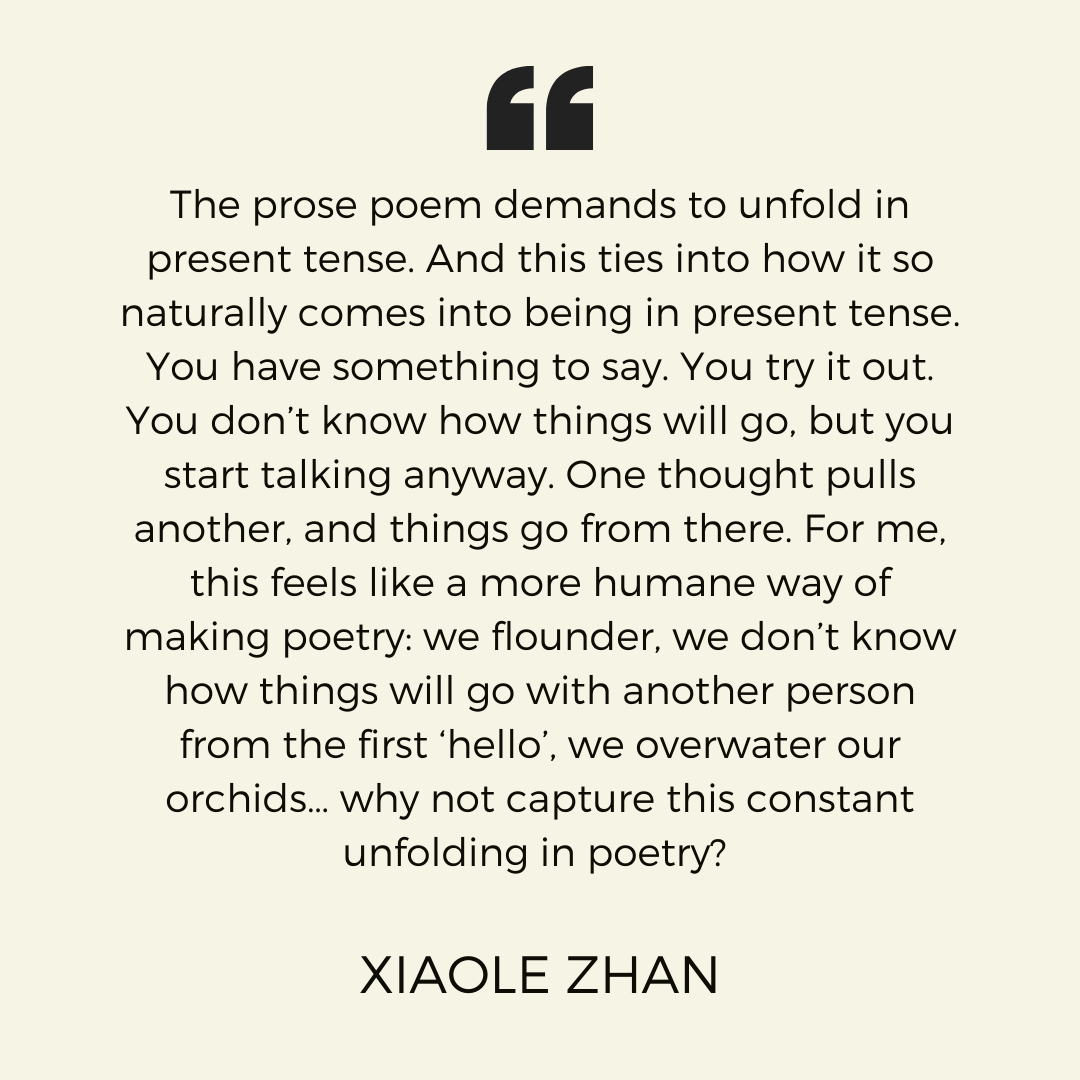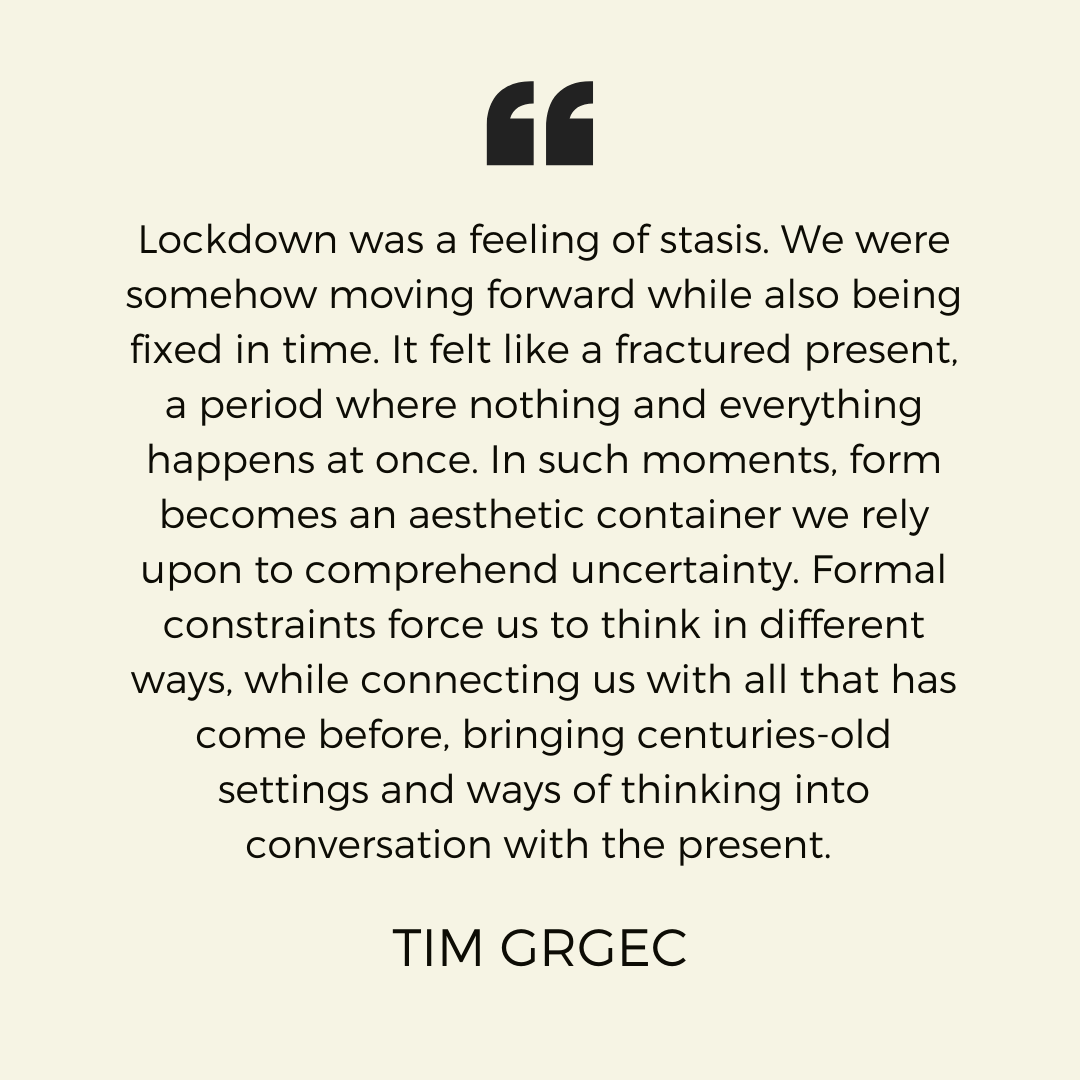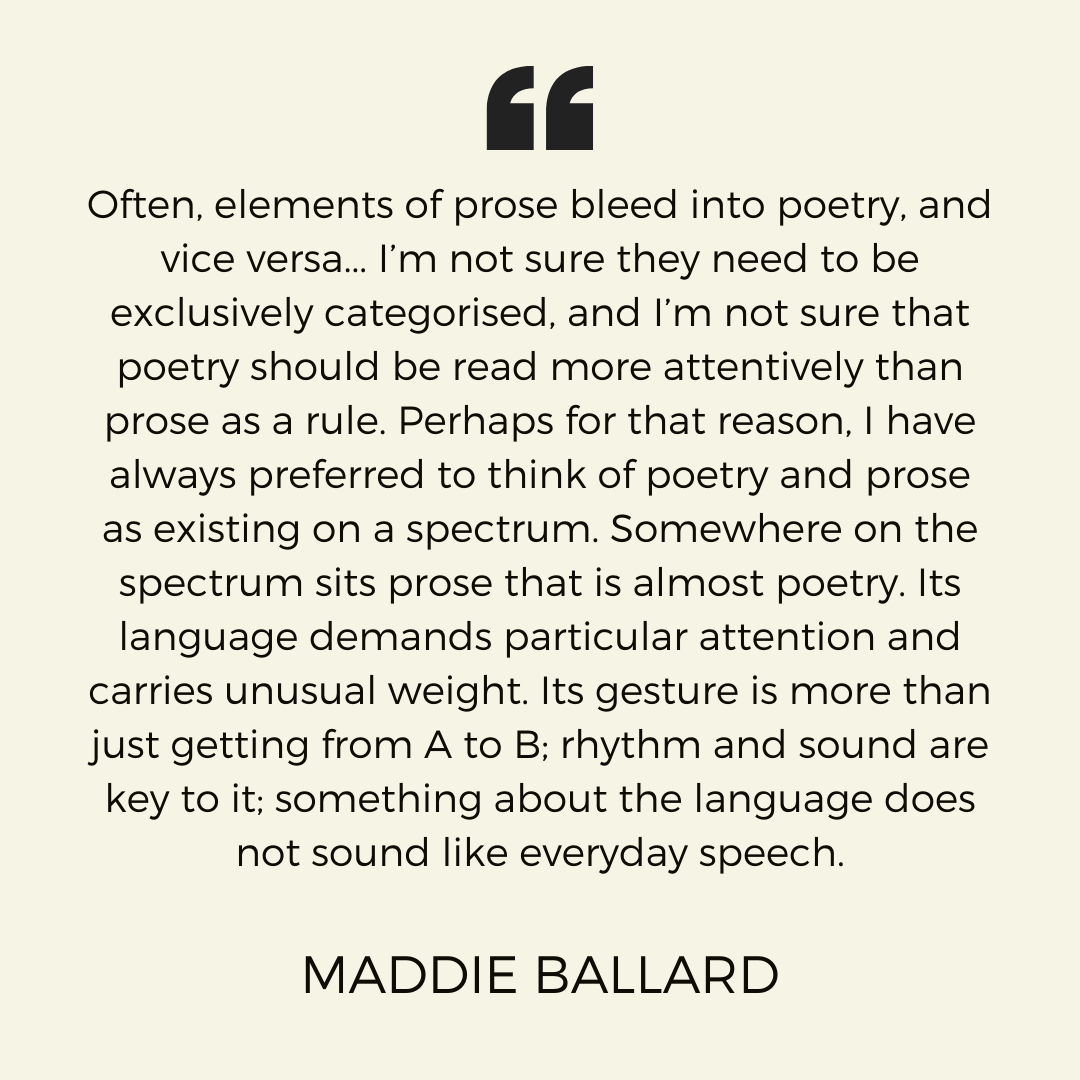Issue 3 - October 2023
|
This third edition includes an interview with Gregory Kan, on assembling and reassembling text in poetry. In both his poetry collections--This Paper Boat and Under Glass—he weaves different threads and layers together, resulting in a dynamic reading experience. Gregory recently released the second version of his text manipulator, glass.leaves (https://leaves.glass), a tool for assembling and reassembling text that can be used to tease out inspirations that may be hiding in a piece. It’s a valuable tool for poets, as well as a playful form of experimentation that anyone can get involved in, no matter their experience in writing.
In this third edition, Claudia Jardine writes on her own experience translating classical texts, some of which only survive to us now as fragments. There are gaps in these texts that may be gone forever, so what do we make of them? Claudia investigates ways to craft a modern poem out of an ancient form, and explores what is lost and created in translation.
In this third edition, Devon Webb takes us through the history of poetry form, and how it has morphed and loosened its constraints over time. Devon really captures how creative and progressive poetry is at heart, by showing the many times poetry has diverted from tradition and has been used to uplift those who look beyond the conventional.
|
Gregory Kan is a poet and programmer based in Wellington. His poetry books, This Paper Boat and Under Glass, were published by Auckland University Press.
Claudia Jardine is the author of BITER (2023) and has an MA in classics from Victoria University of Wellington, where she won the 2020 Alex Scobie Research Prize. Her first chapbook, ‘The Temple of Your Girl', was published in AUP New Poets 7 (2020). Her ancestors are from the British Isles and the Maltese Archipelago, and she lives in Ōtautahi.
Devon Webb is a 25-year-old poet & writer based in Aotearoa. She shares her poetry online, through live performance, & has been widely published both locally & internationally including in The Spinoff, The Big Idea & bad apple. She is the two-time Wellington Slam Poetry Champion & is currently working on the final edits of her debut novel The Acid Mile. Her work can be found on Instagram, Twitter & TikTok at @devonwebbnz.
|
Issue 2 - October 2022
|
This second issue includes an interview with Vanessa Mei Crofskey on visual forms in poetry. Vanessa is both an incredible visual artist and poet. Her collection in AUP New Poets 6 has a range of playful and clever poems that move into other forms—like spreadsheets, graphs, and post it notes. Vanessa’s insight into the power of text, as well as its additional energy when it collides into different formats, is an inspiring call to look beyond the letters, and see what the visual world can bring.
In this second edition, Anuja Mitra writes on how fragmentation in poetry can create a range of new possibilities. Using blackout poetry as a starting point, Anuja investigates texts that find power through erasure, and how these unseen gaps turn into something compelling and intriguing
|
Vanessa Mei Crofskey (they/she) is an artist and writer currently based in Te Whanganui-a-Tara. They are the current Kaitohu | Director of arts and culture journal The Pantograph Punch, and have worked across performance, literature and visual arts for the past five years. They need a haircut.
Anuja Mitra lives in Tāmaki Makaurau/Auckland and has rambled about poetry and theatre for Cordite, a fine line, Aniko Press, Minarets and Theatre Scenes. Her recent creative publications include takahē, the anthology No Other Place to Stand and Poetry New Zealand. Find her linktree and assorted thoughts on Twitter @anuja_m9.
|
Issue 1 - December 2021
|
This first issue includes an interview with Xiaole Zhan on prose poetry, her novella The Extinct, and her love of both words and music. Xiaole writes with such a strong and steadfast voice in her prose poems, and her words as an interviewee will leave you feeling inspired. If you haven’t had a taste of her writing already, hop on over to the National Schools Poetry Award website and read her 2019 winning poem, mammalian. Here, Xiaole brings out a narrative of striking and visceral images, but she does it in such a tender way that it almost lovingly exposes the delicate patches in us all.
Tim Grgec writes on how form is used to comprehend the world around us. With the uncertainty of lockdown as the backdrop, Tim searches for something grounded. He thoughtfully talks us through both an introspective and chaotic poem from Sam Duckor-Jones’ new book, Party Legend, which borrows a form outside of literature to bring something new and unexpected.
Maddie Ballard writes on the differences between prose and poetry, as well as the spectrum that lies between them. With her love of and attention to these hybrid forms, investigates the features of what makes something feel closer to prose or poetry—as well as how the appearance of prose in poetry, and vice versa, can further heighten the story that’s being told.
|
Xiaole Zhan (詹小乐) is a writer and composer currently in second-year university studies. Her name in Chinese is 小乐 and means ‘Little Happy’ but can also be read as ‘Little Music’. She was the winner of the National Schools Poetry Award 2019 and the first-equal winner of the 2019 Secondary Schools Division of the Sargeson Short Story Prize.
Having failed to achieve his childhood dream of playing for the Black Caps, Tim Grgec now has delusions of becoming a great writer. His first book of poetry, All Tito's Children, is out now with VUP.
Maddie 文麗 Ballard is a writer based in Tāmaki Makaurau. By day, she works as the deputy editor of dish magazine, but she is always trying to get more poetry into her life. Her work can be found at The Pantograph Punch, Starling, The Oxford Review of Books and on her blog, fieldnotesoninbetweening.substack.com.
|

